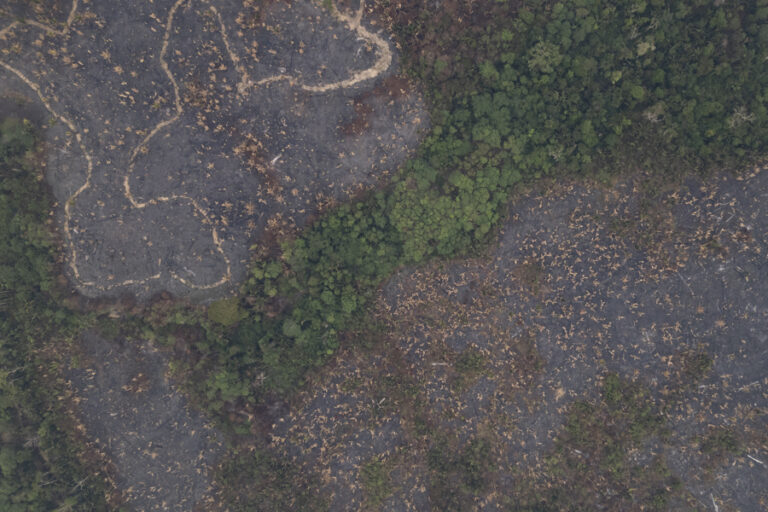
Concern over climate change and deforestation is growing in Brazil, according to a survey.
Environment Editorial, Oct 28 (EFE)
In Brazil, concern about climate change rose to 33% in 2025, compared to 18% in 2022, while in nine other Latin American countries, this concern fell between 1 and 5 percentage points, according to a survey by the Forest Stewardship Council (FSC) published Tuesday.
According to the study, whose data is being presented at the FSC General Assembly meeting in Panama City, which is discussing the future of responsible forest management and its role in addressing the climate emergency, public concern about climate change is declining in much of Latin America, even after a year marked by unprecedented hurricanes, floods, droughts, and wildfires, according to data from the World Meteorological Organization (WMO).

The survey – conducted by Ipsos for the Forest Stewardship Council (FSC) among more than 40,000 people in 50 countries – reveals that war and conflict, at 52%, are the top concern, followed by death and disease (45%), economic problems (44%) and climate change (31%).
Other issues that concern citizens include unemployment (30%), pollution (17%), inequality (15%), lack of food (14%), loss of animal and plant species (12%) and deforestation (9%).

In the ten Latin American countries surveyed, the results show a significant contrast on the issue under study: Mexico leads with 42% concern, while Bolivia remains at just 17%, a 25-point difference between the countries, “a significant gap within the region.”
Despite the region’s high vulnerability to climate impacts, only Brazil and Mexico show an increase in concern compared to the 2022 survey, with Brazil standing out globally as the only country where concern nearly doubled, rising from 18% to 33% in the past two years.

On the contrary, in other countries the trend was downward: Argentina went from 26 to 21% (-5), Colombia from 29 to 25% (-4), Chile from 30 to 26% (-4) or Peru from 27 to 26% (-1).
According to FSC, these changes demonstrate “a growing disconnect” between the urgency of the climate crisis and public perception in several countries in the region.

“The widespread spread across Latin America shows that attention and risk are not uniform. But this isn’t apathy: it’s a signal to act pragmatically. When people see specific forest risks, such as fires, water stress, or biodiversity loss, they respond,” says FSC Director General Subhra Bhattacharjee.
FSC’s work is to make “climate action tangible: verified deforestation-free supplies, stronger forest safeguards, and results that companies can show their consumers,” Bhattacharjee says.

Forests and climate change in Latin America
Regarding forest-related concerns, illegal logging ranks first in the regional average (25%), higher than any other region in the world. Latin America is also the only region where both forest fires and deforestation rank among the top environmental concerns.
Taken together, the findings show why protecting forests—and the communities that depend on them—is both a climate necessity and a supply chain imperative, according to FSC.

“Communities are safer when supply chains recognize and reward good practices,” says FSC’s CEO.
By purchasing from independently verified, deforestation-free operations that respect Free, Prior, and Informed Consent (FPIC), maintain buffer zones and conservation areas, and share benefits through clear agreements, “companies reduce risks and help protect people and forests,” he notes.
However, according to the study, in the region, economic problems, inflation, and insecurity are displacing climate change as a priority.

Despite the decline in climate concerns, interest in sustainability and forest-protecting products remains high both globally and regionally.
Thus, 72% of consumers say they prefer products that do not harm plants or animals. In Latin America, this sentiment is even stronger, with an average of 82% in Brazil, 79% in Chile, and 84% in Mexico.




